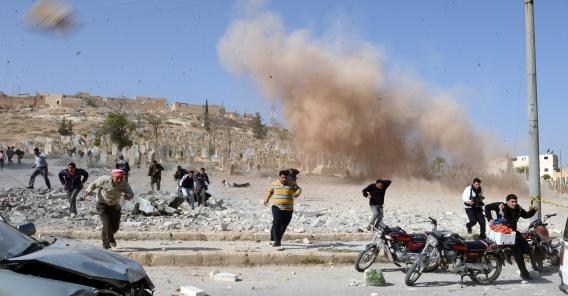With a long, bitter presidential campaign finally over (and recovery from Sandy underway), Americans are largely breathing a sigh of relief this morning. But for Syrians, the violence in their country continues—and the end is nowhere in sight.
In the latest in a seemingly neverending string of attacks and counter-attacks, rebel forces this morning fired mortar shells at President Bashar Al-Assad’s palace in Damascus, only to miss their target and instead hit a nearby residential neighborhood, killing three people and wounding seven others in the process. A second deadly attack followed when a bomb detonated beneath Judge Abad Nadhwah’s car, killing him. SANA, the state-run media, described both incidents as terrorist attacks, the government’s standard description for the opposition.
Here’s the New York Times with more:
The assassination of the judge … was the second high-profile killing of a top Assad loyalist in the Syrian capital in two days and added to the impression that the Syrian insurgency had intensified in the face of sputtering international diplomacy aimed at resolving the 20-month-old conflict.
The latest mayhem coincided with news reports that Turkey, one of Mr. Assad’s most strident critics, was considering the deployment of Patriot missiles along its border with Syria to protect insurgent safe zones there from Syrian aerial assaults. If carried out, deployment of the missiles — which could easily shoot down Syrian helicopters, warplanes or missiles that veer close to the border — would represent an escalation of military tensions between the neighbors.
The increasingly sectarian conflict is now at serious risk of spilling over into neighboring countries, threatening to destabilize the entire region, but the international efforts to bring an end to the crisis have been hampered by Russia and China, which together have vetoed three U.N. Security Council resolutions.
Right now, the international community isn’t sounding very optimistic that things well get better anytime soon. Lakhdar Brahimi, the U.N. envoy to the conflict, warned that “unless there was a greater international effort, Syria risked becoming another Somalia.”
